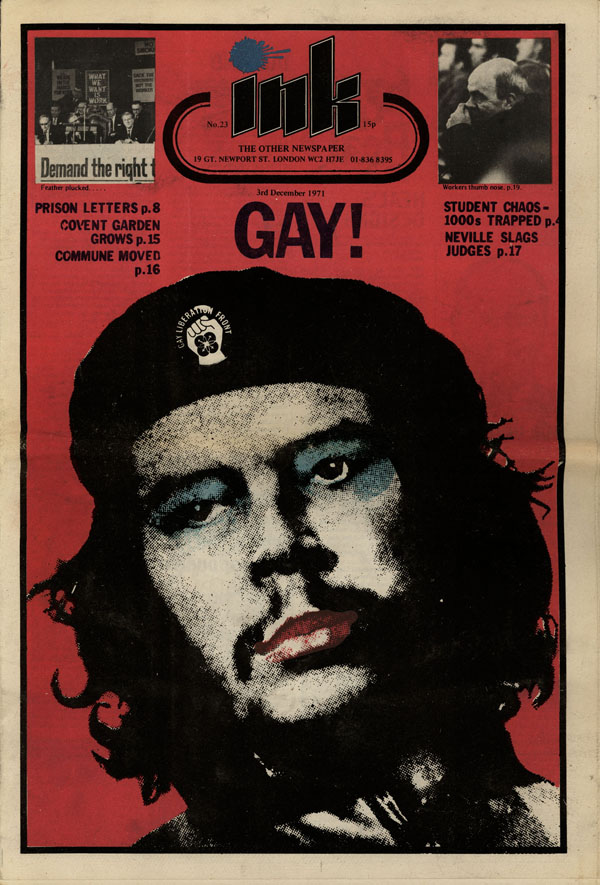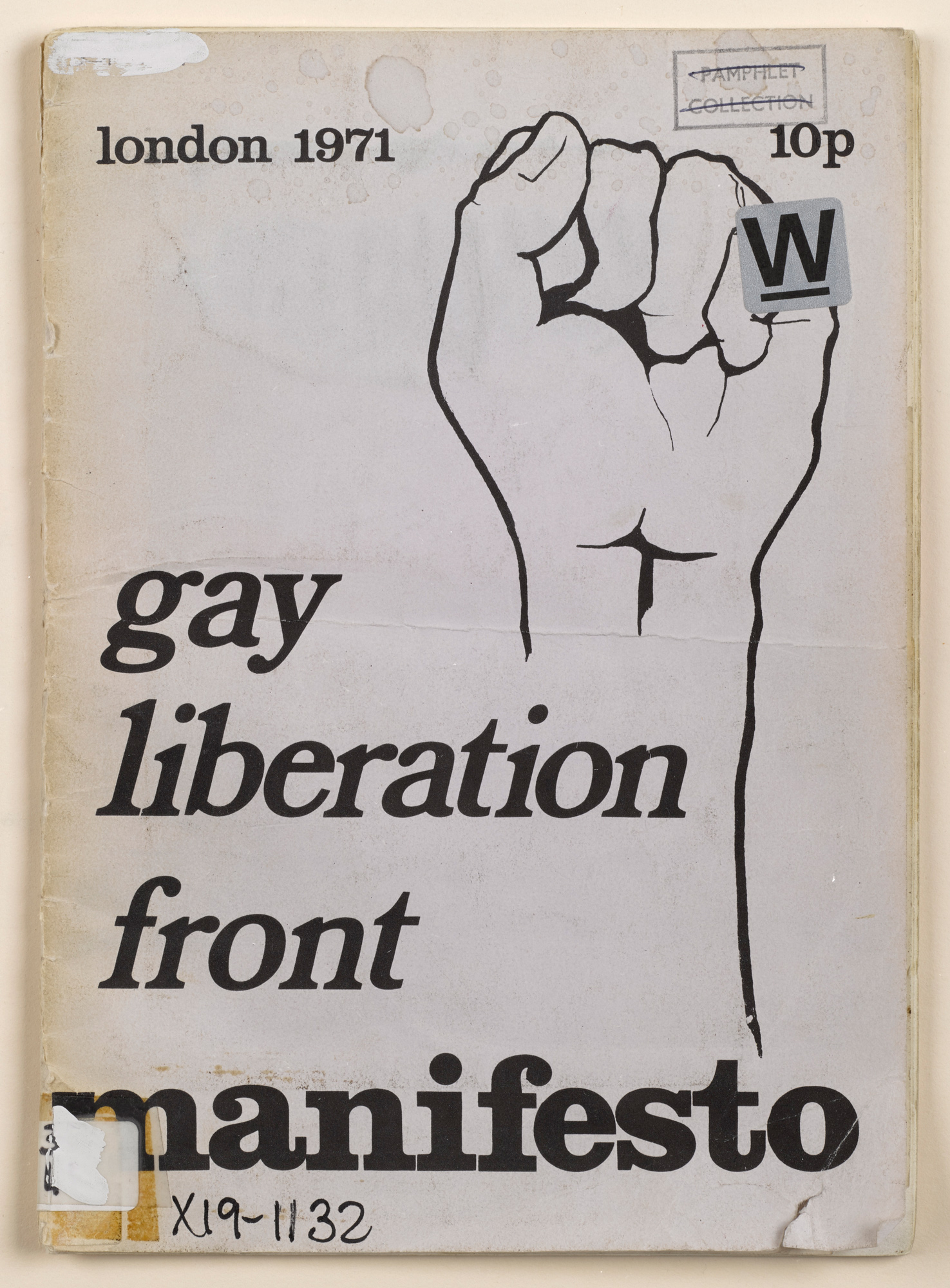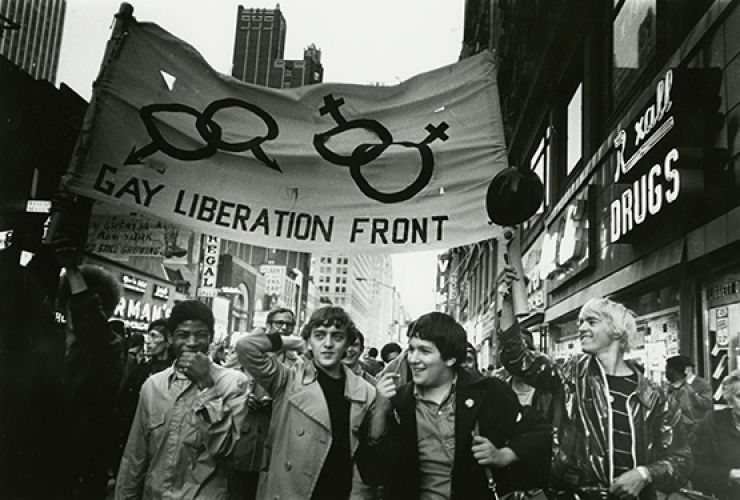Jamie Perkins marks the 50th anniversary of the founding of the Gay Liberation Front and discusses its importance in the struggle for LGBT+ rights in Britain.
Today, the 13th of October 2020 marks an important milestone in the fight for equality and recognition of LGBT+ rights in the Britain. On this day in 1970, a group of students led by Bob Mellor and Aubrey Walter met in the basement of the London School of Economics, holding the first meeting of Britain’s very own Gay Liberation Front (GLF). Whilst this was an important step forward in Europe, the world’s first GLF group was originally formed earlier in the aftermath of the violent Stonewall Riots in New York during the heated year of 1969.
Their name, partly inspired by the Vietnamese National Liberation Front, did exactly what it said on the tin – to be a vanguard of gay liberation that sought to seek out and fight for a new realisation of LGBT+ identity and lifestyles, that was vehemently anti-capitalist. They demanded an end to the police brutality experienced by homosexuals and for the recognition of LGBT+ rights. Throughout these turbulent years, they offered solidarity and support to the Black Panther Party and actively campaigned against anti-homosexual propaganda, spreading from New York to San Francisco.

Across the Atlantic, the Britain’s GLF released a manifesto in 1971 that contained the following eight demands:
- that all discrimination against gay people, male and female, by the law, by employers, and by society at large, should end.
- that all people who feel attracted to a member of their own sex be taught that such feeling are perfectly valid.
- that sex education in schools stop being exclusively heterosexual.
- that psychiatrists stop treating homosexuality as though it were a sickness, thereby giving gay people senseless guilt complexes.
- that gay people be as legally free to contact other gay people, though newspaper ads, on the streets and by any other means they may want as are heterosexuals, and that police harassment should cease right now.
- that employers should no longer be allowed to discriminate against anyone on account of their sexual preferences.
- that the age of consent for gay males be reduced to the same as for straight.
- that gay people be free to hold hands and kiss in public, as are heterosexuals.

These demands were joint with action to combat anti-gay sentiment by crashing new-wave religious events (such as the 1971 Festival of Light) and protests where GLF members would appear in full drag, brandishing banners and using direct action tactics to visually disrupt and cause a scene, adding exposure to the GLF cause and attracting media attention to their demands.
By 1974 the steam was running out, with the GLF splintering into numerous LGBT+ campaign groups and organisations, many which still exist today. Original GLF members were instrumental in the formation of the legendary Lesbian and Gay Switchboard, of which our own YCL General Secretary Mark Ashton volunteered at during the 1980’s.
The legacy of the GLF cannot be understated; without it, the world would be very different for LGBT+ people. Before such an organisation was formed, active and public resistance to the anti-homosexual attitudes and laws ingrained in western society had not been attacked in such a way. Ordinary LGBT+ people, inspired by Stonewall came together to attempt the seemingly impossible task of making the world a better place to exist in no matter your sexuality or identity. Whilst seemingly uncontroversial in 2020, the demands laid down by the GLF were all legitimate examples of the oppression, discrimination and alienation the LGBT+ community faced during this period. Despite their tireless activity, many of the societal problems faced by LGBT+ individuals are still prevalent today, especially with the refreshed rise of far-right attitudes in a country led by a Conservative Government.
We can use their bold example to continue the fight for LGBT+ liberation as a new generation of youth rises up to challenge the stereotypes, attitudes and threats that face us today.
Jamie Perkins
References
- https://sourcebooks.fordham.edu/pwh/glf-london.asp – Gay Liberation Front: Manifesto, London, 1971, Revised 1978
- https://timeline.com/this-is-what-britains-gay-liberation-front-movement-looked-like-in-the-1970s-c8583401a209
- https://www.nyclgbtsites.org/site/gay-liberation-front-at-alternate-u/



